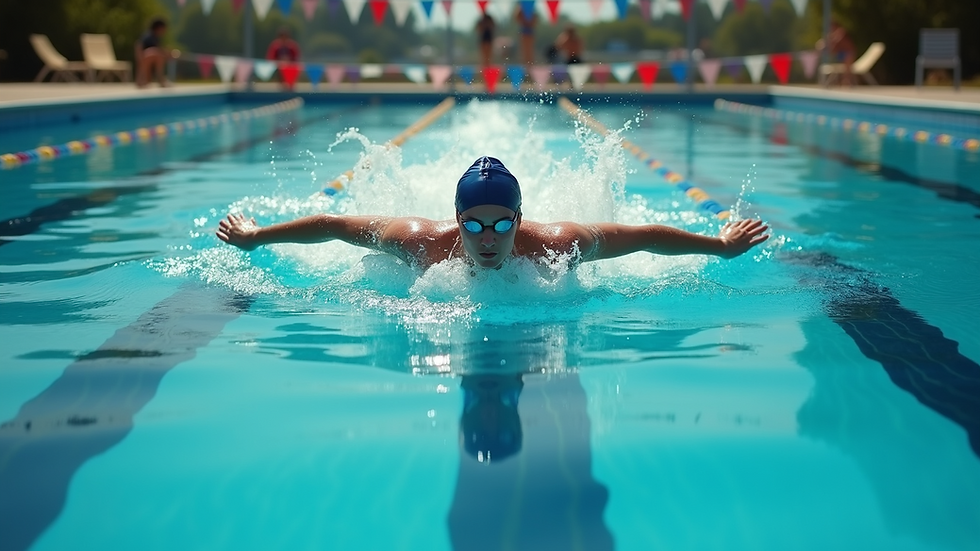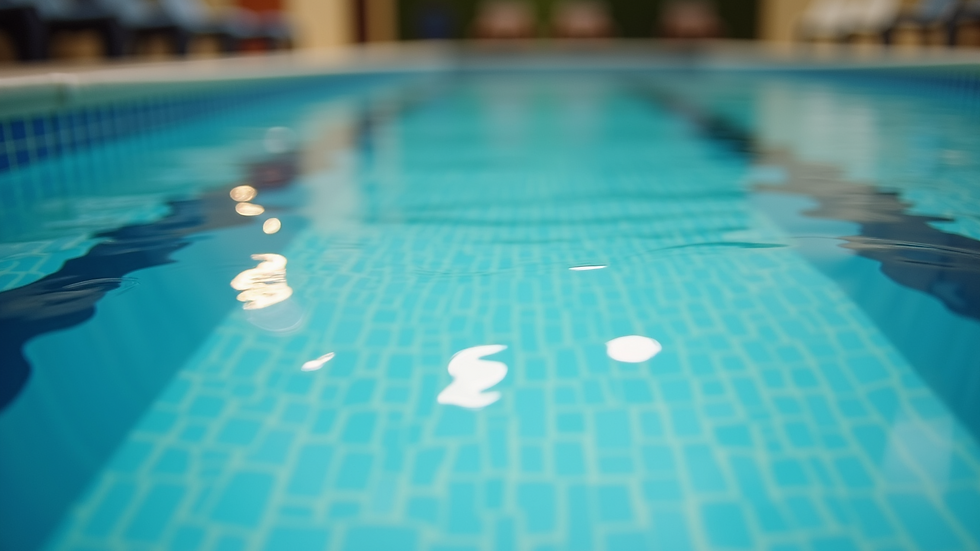From Lanes to Legends: The Mindset That Builds Swimming Champions
- Dr Paul McCarthy

- Jul 30, 2025
- 4 min read
Swimming is not just a sport; it’s an art that weaves together physical skill, strategic execution, and a strong mental approach. From toddlers learning to float to seasoned athletes competing on world stages, the journey of a swimmer is not just about the laps in the pool; it’s also about building a psychology of excellence. Understanding what transforms a swimmer into a champion involves embracing the champion swimmer mindset.
This post will explore how to cultivate mental training for swimmers, identify the psychological traits of successful swimmers, and illustrate how adopting an elite athlete mindset can elevate performance in swimming.
The Champion's Mental Framework
The champion swimmer mindset is built on key mental habits such as self-discipline, resilience, and positive thinking. These qualities can be cultivated through intentional mental training.
Building mental toughness in swimming takes time and consistent effort. Swimmers should view setbacks as valuable lessons, drawing motivation from past failures rather than letting them discourage them. For example, after missing the podium in a major competition, Michael Phelps famously focused on analyzing his performance to improve his technique for future races.
The Power of Visualization
Visualization is one of the most effective tools that successful swimmers use to enhance their performance. This technique involves imagining each step of a race, from the start block to the finish line. Research indicates that athletes who regularly practice visualization see a significant improvement in their performance. A study in the Journal of Sports Psychology found that athletes who visualize their skills improve by as much as 45%.
Top swimmers like Katie Ledecky use vivid imagery to mentally rehearse races. They picture every stroke, breath, and turn long before they hit the water. This practice prepares their bodies and minds for success, allowing them to perform with confidence.
Developing Routine and Focus
Elite swimmers thrive on routine. A structured routine helps reduce anxiety and enhances performance. Successful swimmers often follow strict diets, maintain rigorous training schedules, and have specific pre-race rituals.
Individuals like Caeleb Dressel adhere to consistent daily habits, which helps them concentrate, even when the pressure is high. For instance, creating a pre-race routine that includes stretching, warm-ups, and mental affirmations allows swimmers to focus their energy and maintain calm under pressure.
Embracing Failure
Accepting failure as part of the journey can significantly shift a swimmer's mindset. Instead of viewing mistakes as setbacks, champions see them as opportunities for growth.
Consider how swimming legend Ryan Lochte has faced public scrutiny and setbacks in his career. Instead of withdrawing, he embraced these challenges, using them as motivation to improve and come back stronger. Each race, regardless of its outcome, can provide valuable feedback for future success.
Building a Support System
The psychological traits of successful swimmers are often shaped by their support networks. The roles of coaches, teammates, and family are crucial in creating a supportive environment.
Having a strong community allows swimmers to share their struggles and triumphs. For instance, many top swim teams have mentorship programs where experienced swimmers help newcomers navigate the challenges they may face. This sense of togetherness fosters mental resilience and encourages swimmers to believe in their potential to achieve greatness.
Goal Setting for Success
Setting clear and realistic goals is a key part of developing the mindset of elite swimmers. Swimmers should set both long-term and short-term goals. These can range from improving swimming technique to achieving specific times in practice.
For example, instead of just aiming for a national title, a swimmer could focus on minor improvements, like reducing their 100-meter freestyle time by 2 seconds over the next month. Achieving these smaller goals builds confidence and contributes to the overall development of a champion swimmer mindset.
Staying Present: The Art of Mindfulness
An essential part of mental training for swimmers is practicing mindfulness. Being present allows swimmers to focus on their technique, form, and performance without distractions.
Swimmers like Missy Franklin practice mindfulness through techniques such as deep breathing and meditation. These practices help them concentrate and perform better, even in high-pressure situations. Staying present not only enhances performance but also increases enjoyment in the sport.
The Road to Championship
So, how do swimmers achieve championship status? It comes down to a blend of rigorous training, unwavering discipline, and a steadfast mindset. Every champion has faced challenges; it’s their outlook that sets them apart.
The journey from lanes to legends requires embracing mental challenges, cultivating resilience, and maintaining a mindset focused on growth and improvement.

The Mindset Shift
Transforming into a champion swimmer involves adopting a mindset defined by resilience, positivity, and an eagerness to learn. The mental habits of top swimmers are rooted in self-belief, goal-setting, and the understanding that both successes and failures contribute to their athletic journey.
As swimmers embark on their unique paths to greatness, they should remember that legends are not born; they are cultivated through unwavering effort and the right mindset. By embracing the mental training techniques discussed, anyone can strive to join the ranks of swimming champions.
Remember, success begins in the mind. Strive for excellence, and the lanes will lead you to legendary waters.









